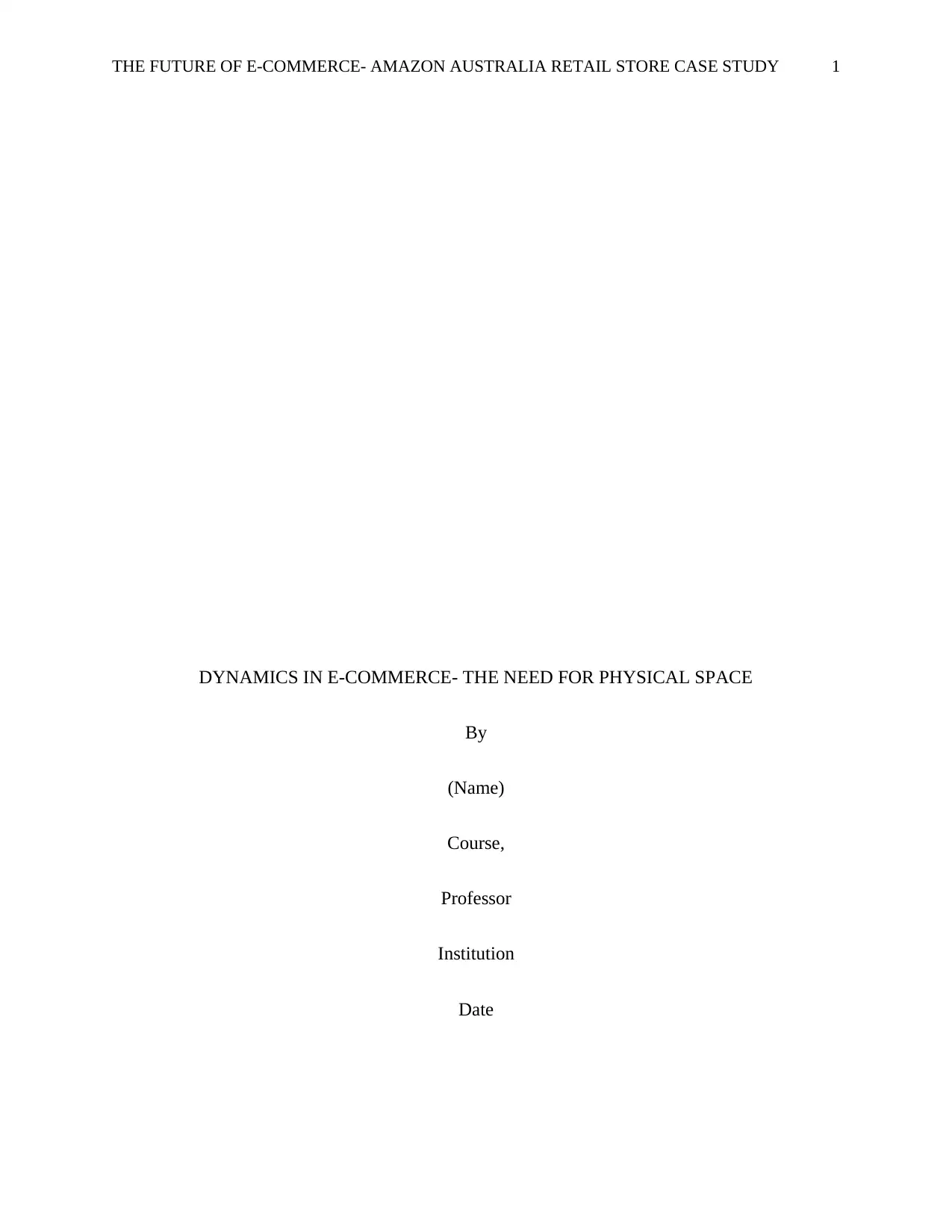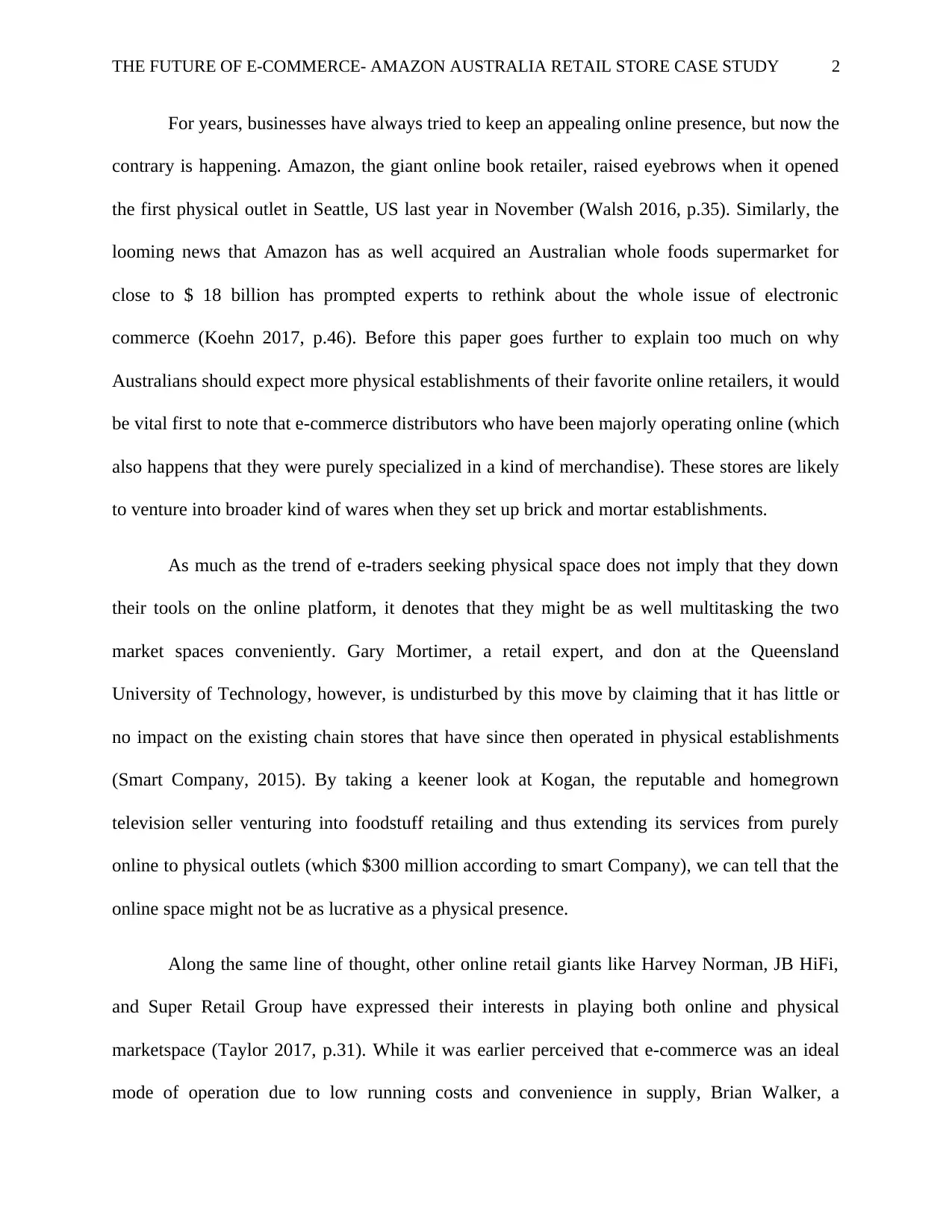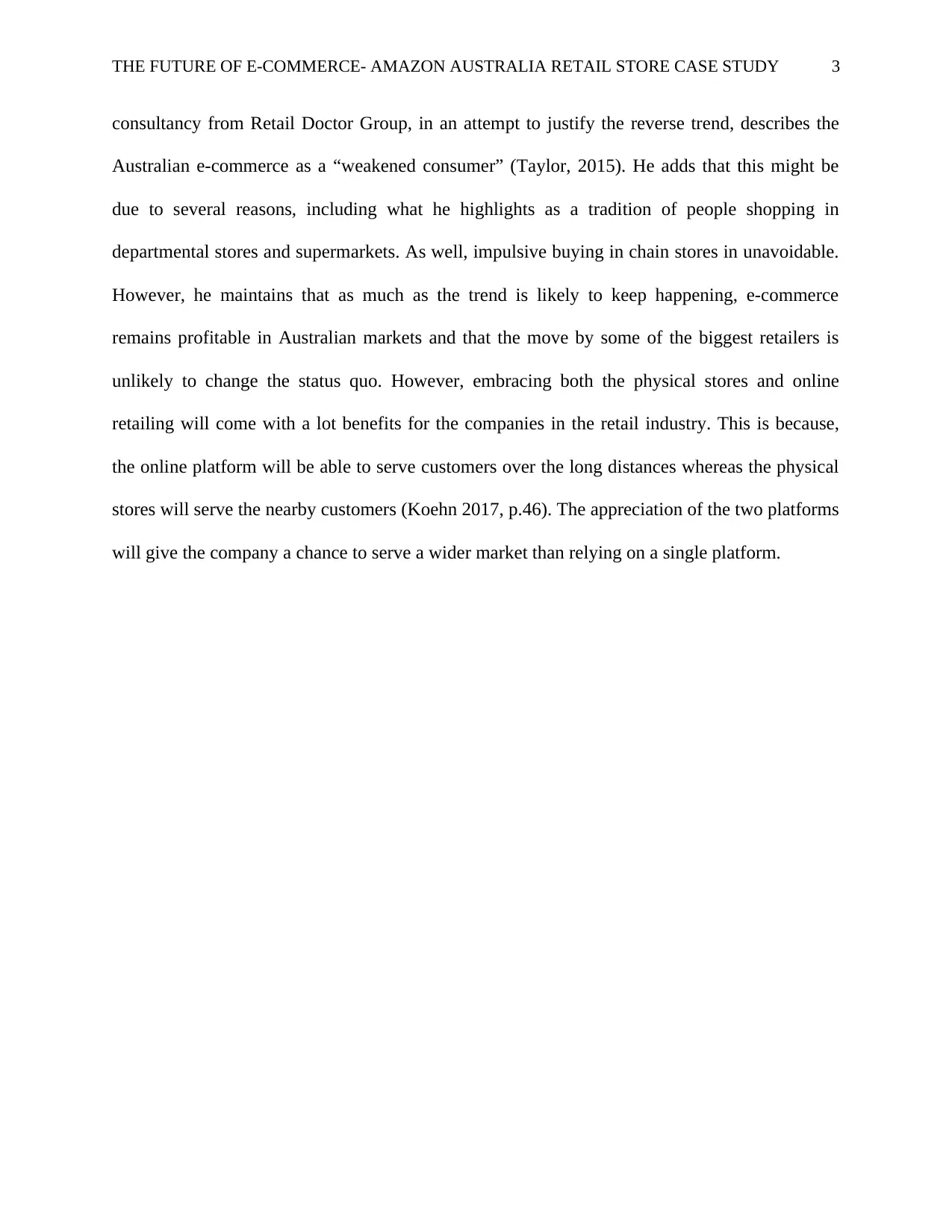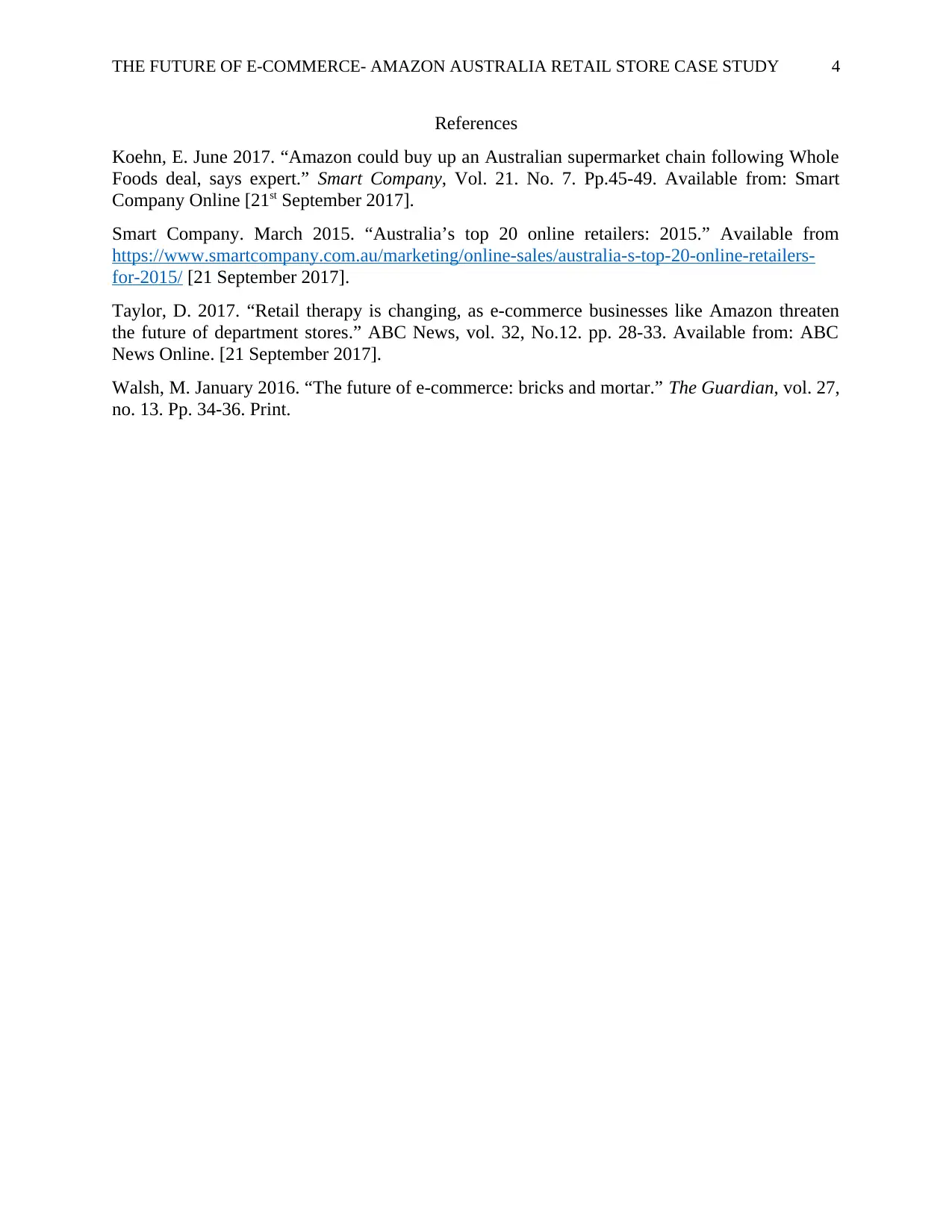Amazon Australia Retail Store: E-Commerce Dynamics and Physical Space
VerifiedAdded on 2020/03/28
|4
|760
|33
Case Study
AI Summary
This case study examines the evolving dynamics of e-commerce, focusing on Amazon Australia's retail strategy. It explores the trend of online retailers, such as Amazon and Kogan, establishing physical stores, and analyzes the rationale behind this shift. The paper discusses the impact of this trend on traditional chain stores, citing expert opinions and market analyses. It also highlights the benefits of integrating online and physical platforms, allowing companies to serve a wider market and cater to diverse consumer preferences. The case study references various sources to support its arguments and provides insights into the future of e-commerce in the Australian market, emphasizing the potential for both online and physical retail to coexist and thrive.
1 out of 4





![[object Object]](/_next/static/media/star-bottom.7253800d.svg)